We honor the memory of cherished colleagues, mentors, and scholars whose lives and work profoundly shaped the Department of Spanish and Portuguese. Their dedication to teaching, research, and community engagement continues to inspire us.
Below are the individuals we remember with deep gratitude. Click on their names to learn more about their lives, achievements, and enduring legacy.
Ph.D., University of Wisconsin-Madison, Professor Emeritus (1946-1963)

Born in Dvinsk, Russia, in 1895, Samuel Abraham Wofsy went with his parents to Brazil and later came to the United States where, as a boy of ten, he did not know a word of English. He grew up largely in Spanish America and returned to this country to earn a law degree at Washington and Lee University. Samuel Abraham Wofsy was one of the founders and the first Chairman of the Department of Spanish Language and Literature at UC Santa Barbara.
He joined the faculty of the University of California of 1946 as a Lecturer. His intention at that time was to retire within a few years, but he so enjoyed his work and was so respected by his colleagues that he remained to become a full Professor and to be among those instrumental in establishing a Department of Spanish Language and Literature in 1961.
Throughout his academic career, Professor Wofsy devoted himself to the writing of textbooks—three with collaborators—nine of which were printed by major American publishers. His works were used throughout the United States and in many countries of the world. In research, Samuel Wofsy was particularly interested in nineteenth century Spanish drama. He retired to Santa Barbara for a few years to round out his teaching career, but stayed to become one of the most respected and honored members of the faculty.
LL.M., University of Granada, Lecturer Emeritus (1946-1965)
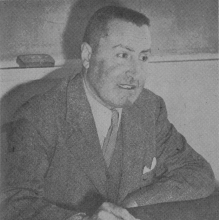
Andres R. Ramón, born in Almería, Spain, on October 19, 1896, died in Santa Barbara following a lingering illness on August 7, 1969. He had retired from active teaching at the Santa Barbara campus in 1965, after nineteen years of continuous service there as Lecturer in Spanish.
Mr. Ramón generally always enjoyed the enthusiastic friendship of his students and will not be forgotten by them. He professed total dedication to them and in fact dedicated all five of his books of poetry to them. There is no denying that he cut a colorful and charming figure about campus, as a dignified Spanish gentleman who never failed to doff his hat to women young and old. Above all, with his beautifully articulated Spanish, Mr. Ramón was always a warm and interesting conversationalist.
His five collections of poems—stylized and personal, ballad-type poetry—are titled Alma y perfil de Santa Barbara (1956), Anchura a la esperanza (1957), Luces (1957), Desde el otro azul (1959), and Eco en su órbita (1960). Mr. Ramón generously published all of his books at his own expense. In 1967, his Permanencia de Rubén Darío appeared, a labor of love and culmination of many years' devotion to the great Nicaraguan poet whose immortal verses seem often to describe the Quixotic Hispanic spirit that Mr. Ramón typified so well.
Ph.D., UC Berkeley, Associate Professor (1963-1973)
Brenton K. Campbell was born on September 23, 1929 in Des Moines, Iowa and died of cancer in Santa Barbara on July 31, 1973. He derived a deep personal pleasure throughout his life from studying languages. After graduating with a major in Spanish and French from Simpson College, Indianola, Iowa in 1950, he attended the University of New Mexico.
In 1963 Dr. Campbell was invited to join the faculty at the UC Santa Barbara campus, where he served loyally until his death ten years later. In 1968-69 he was associate director of the Madrid Study Center, in the UC Education Abroad Program. At UC Santa Barbara he was vice chairman of the Department of Spanish and Portuguese from 1970 to his death, and acting chairman whenever the occasion required. He was also chairman of the interdisciplinary program of Hispanic Civilization during his last year, after several prior years on its advisory committee.
Ph.D., UNESP Araraquara, Professor (1970-1978)
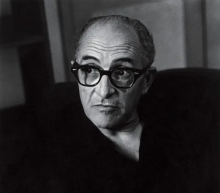
Jorge de Sena, considered one of the most important figures in Portuguese literature, was born on November 2nd, 1919, in Lisbon, Portugal. Although for fifteen years he pursued his career as an engineer for the state, his consuming interest was literature, a field he had cultivated seriously both as a poet and a critic since his university days.
In 1959 he left Portugal and his career as an engineer and went with his family to Brazil where he became a professor of literary theory at the University of São Paulo (UNESP), while he finished his doctorate in literature. first in Assis and later in Araraquara. At the time, it was still called the Faculdade de Filosofia, Ciências e Letras. He was a member of the faculty of the University of California, Santa Barbara, from 1970 until his death. He had been the chairman of the department of Spanish and Portuguese and directed the comparative literature department from 1972 to 1978.
Jorge de Sena's literature production was truly prodigious. Most famous of his novels is Sinais de Fogo, which is widely regarded as one of the most important Portuguese novels of the 20th century. Besides being the leading authority on Camões and Fernando Pessoa, Sena's literary production comprises four volumes of short stories, seven plays, and more than twelve volumes of poetry -- works which distinguish him as an extraordinary literary figure.
Professor Emeritus (1968-1977)
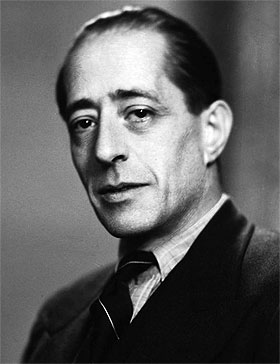
Arturo Serrano Plaja was born in Spain in San Lorenzo del Escorial. In 1967, he came to the Santa Barbara campus where for ten years, in his classes on Cervantes, the theme of Don Juan, and on modern Spanish poetry, he kindled in his students an intense enthusiasm that led them to discover and share his vision of Spanish culture as a great teacher, as one of the best Spanish poets of this century, and as a man whose entire life, like his writings, showed wholehearted commitment to his ideals.
In 1977, Serrano Plaja retired with the hope of devoting himself more intensively to research and to his own poetry. His active leisure, in which he continued his fruitful contact with students and above all his search for the poem that would finally satisfy him, was interrupted in 1978 by a heart attack. After a year's illness he died in Santa Barbara on June 16, 1979. He is survived here by his wife, Ingrid, and in Paris by his son, Carlos, a professor of Spanish at the Sorbonne.
Text by David Bary, Marta Gallo, Enrique Martínez-López, and Giorgio Perissinotto
Ph.D., University of Southern California, Professor Emeritus (1955-1980)
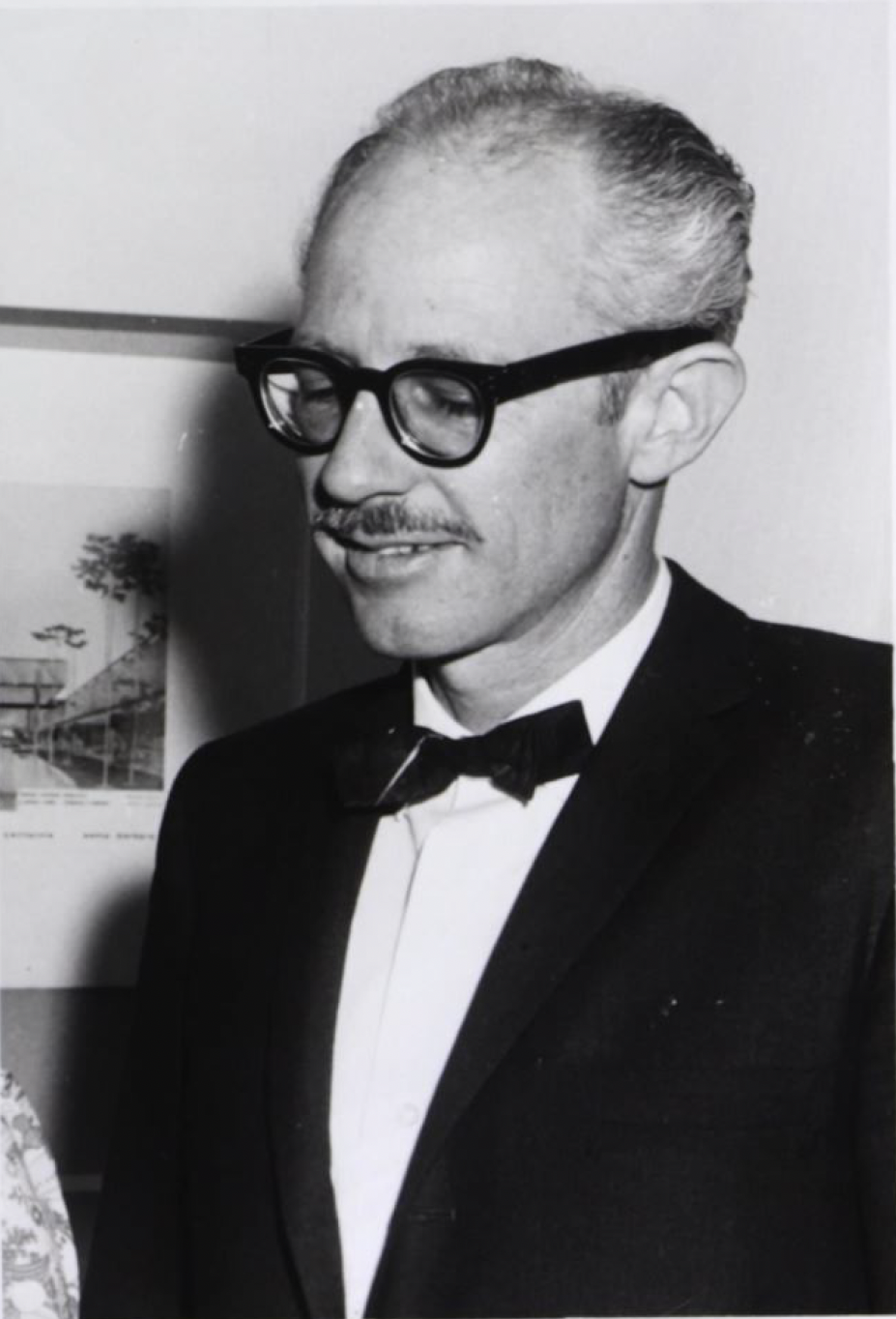
Professor Winston Reynolds received his formal education in California, earning his Bachelor's degree from UC Los Angeles in 1950, the M.A. degree in 1951 and the Ph.D. from the University of Southern California in 1957. He joined UCSB in 1955 as an Acting Instructor and rose to the rank of full Professor in 1970.
Professor Reynolds was one of the founding fathers of the Department of Spanish and Portuguese. He became its chairman during this initial period, serving from 1962 to 1965, and was instrumental in bringing to the newly created department a number of young faculty members. His research interest focused on Spanish Golden Age literature (16th and 17th centuries) and, in particular, Spanish literary manifestations in connection with the colonization of Mexico by Spain. He was the author of a number of scholarly books and articles on this subject.
Text by David Bary, Carlos. García Barrón, and Enrique Martínez-López
M.A., University of Arizona, Lecturer Emeritus (1961-1978)
Robert E. Wilson died on July 6, 1994, in Santa Barbara at the age of 83. He was born in Burlington, Iowa, on May 8, 1911, to Harold and Lucia Wilson.
In 1961, Wilson joined the faculty of the Department of Spanish and Portuguese at the University of California, Santa Barbara, where he established and supervised an expanded and very popular lower division Spanish language program. He was soon advanced to lecturer with security of employment, and upon his retirement was granted the title of emeritus.
He contributed to the University in various capacities for twenty-one years of active service. Although he officially retired in 1978, he continued to teach until 1982. I He also published many articles in professional and scholarly publications on such diverse topics as language usage and Washington Irving in Spain. As an emeritus faculty member, Wilson founded the Amigos Association of the Department of Spanish and Portuguese, which brought together students, faculty, and members of the community who were interested in things Hispanic and Luso-Brazilian for lectures, films, and socials.
His students and colleagues in two professions from around the world are grateful for the excellent service he rendered the local and larger communities as an ambassador of good will through knowledge, understanding, and communication.
Text by Frederick G. Williams
Ph.D., University of Madrid, Professor Emeritus (1968-1976)
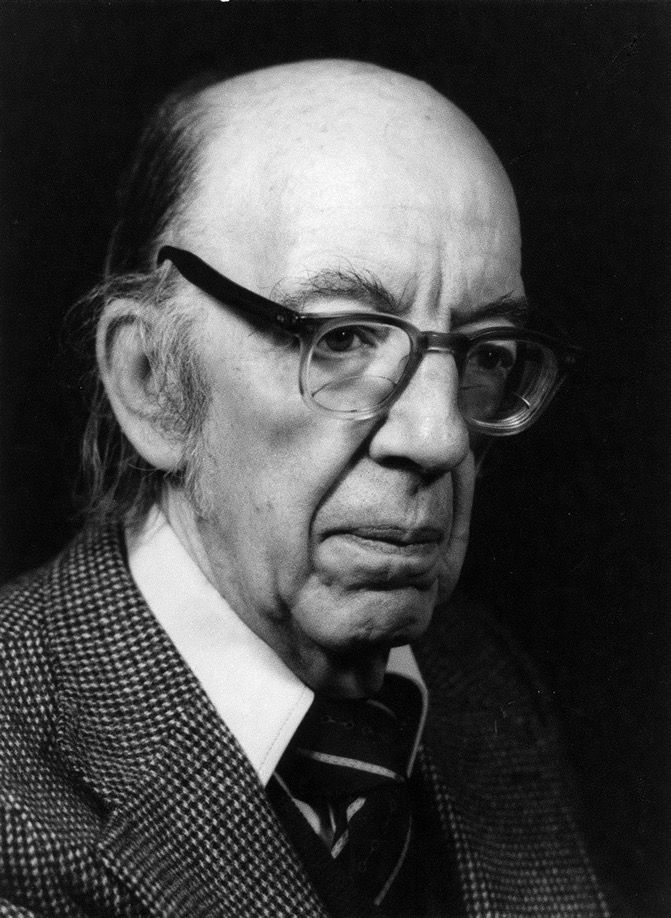
Bio
Ph.D., UC Davis, Senior Lecturer (1984-1996)
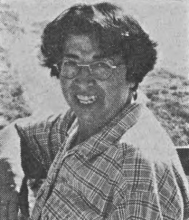
A Bolivian by birth, Graciela came to the States in the late 60s and adopted California as her home state in the early 70s. In 1976, she became the assistant coordinator of the Spanish lower division program at UC Berkeley; she received her Ph.D. in Spanish from UC Davis in 1978. She came from Berkeley to UCSB in 1984 to become director of the lower division program of the Department of Spanish and Portuguese, a position she held until her death. Her outstanding qualities as a supervisor and her knowledge of teaching methodology made her a recognized authority in the field, leading to invitations such as the one from the governor of North Carolina in 1990 to train high school teachers in Spanish and in methods of teaching Spanish.
More importantly, a legion of teaching assistants and instructors all over the country, some now chairs of departments, can attest to her professionalism, to her support in matters of the human heart, and to her talent for and commitment to the diffusion of the Spanish language. They have also become the radiant supporters of her successful Horizontes. Now in its second edition, Horizontes is a set of three Spanish teaching texts designed for college students. Despite the ravaging effects of her illness, she was working on revisions of the third edition just days before her death.
Text by Silvia Bermúdez
Ph D., University of Lisbon; Doctor Honoris Causa, Universidade do Porto, Professor Emerita (1979-1987)
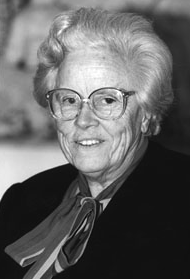
Maria De Lourdes Belchior Pontes was born in Lisbon on July 9th 1923. After graduating in 1946 with a degree in romantic philology, she taught alongside poet Sebastião de Gama in a local school and accepted a position offered by the Faculty of the Arts at the University of Lisbon as Second Assistant. Later, she made history as the first woman to hold the title of "Extraordinary Teacher" at the University of Porto. She also served in the Portuguese Embassy in Brazil and was the President of the Institution of Camões before she arrived in the U.S.
In 1978, Belchior was invited to replace Portuguese writer and friend Jorge de Sena heading the department of Spanish and Portuguese at the University of California. For ten years, she led the teaching in the field of Lusophone literatures and cultures at the University of Santa Barbara, California.
Her death on June 4, 1998 was described by the president of the Calouste Gulbenkian Foundation, Ferrer Correia as "the loss of one of the most notable figures in Portuguese culture." The city of Lisbon paid tribute to her life by naming a street after her.
Ph.D., Stanford University, Professor Emeritus (1946-1976)
Pablo Ávila was part of the small group of professor who started the Department of Spanish and Portuguese at UC Santa Barbara in the late 1950s. He received his Ph.D. from Stanford University. His early research was in translations and notes of California documents from the Spanish and Mexican periods. Professor Ávila’s focus of teaching and research was Mexican literature of Colonial Times and poetry of the 19th century. He was a recognized scholar on the “Pastorelas”, popular religious Medieval Spanish plays that flourished in Mexico and are performed in California (including in Santa Barbara) and the South West. He also focused on the teaching of grammar and composition.
Ávila was highly esteemed by his colleagues and the students. He served in many committees and as Acting Chair of the Department. Pablo Ávila was a dedicated family man. He and his wife had ten children, some of whom graduated from UC Santa Barbara. Professor Ávila was very liked and respected in the Santa Barbara community, where he generously participated in many public and community services. In the Department of Spanish and Portuguese our dear colleague is fondly remembered for his dedication, integrity and collegiality.
Text by Eduardo P. Raposo
Ph.D, UC Los Angeles, Associate Professor (1998-2006)
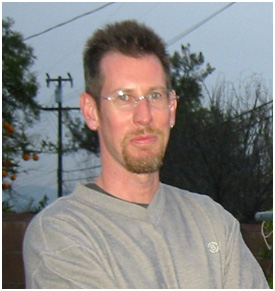
Dr. Timothy McGovern, 41, of Simi Valley, a professor and director of the Spanish and Portuguese language and literature program at University of California at Santa Barbara, passed away on Monday, Oct. 9, 2006.
Dr. McGovern completed his education at California State University at Northridge and received his doctorate from University of California at Los Angeles in 1997. Following a year of teaching at Texas A & M, he returned to his beloved California to resume his professional career at University of California at Santa Barbara. He was the author of "Dickens in Galdos" as well as many articles in professional journals and publications.
Published by Ventura County Star on Oct. 16, 2006.
P.L., University of La Plata, Professor Emeritus (1969-1986)
Carlos Albarracín Sarmiento was born in La Plata, Argentina on May 1, 1926. He studied at the Anexa School, the Rafael Hernández National College and the Faculty of Humanities at the National University of La Plata. He graduated from the latter with a degree in Literature. From then on, he devoted himself to teaching and linguistic and literary research. For many years, he worked in the United States until, in 1986, he retired as Professor Emeritus from the University of California.
In the United States, where he had a fruitful career, his first destination was the University of Santa Barbara; in 1986, he retired as Professor Emeritus from the University of California.
In the field of research, he edited countless articles and essays ("First-person pronouns and types of narrator in 'La Araucana'", "Sarmiento and rhetoric", "Literature and reality in 'Las babas del Diablo', by Cortázar"). His "Estructura del Martín Fierro" (1981) was considered by critics "the most extensive and complete analysis" of that foundational work. Together with his close friend and colleague Roberto de Souza, he published in the pages of EL DIA the enlightening column "History of words", and left unpublished the novel "The city of parallel streets".
Ph.D., Harvard University; D. Litt., University of Castilla–La Mancha, Professor Emeritus (1984-2003)
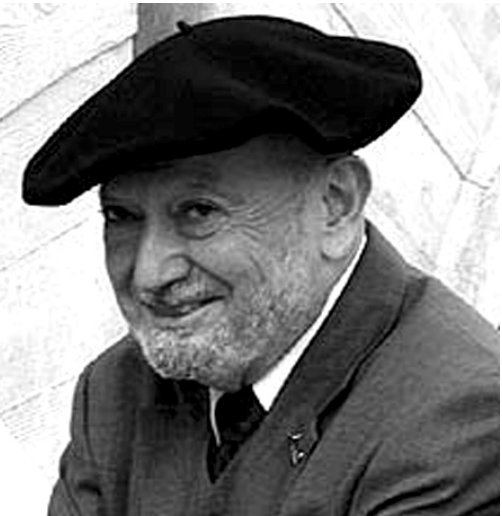
Bautista Avalle-Arce was born in Buenos Aires, Argentina, to a family with Galician and Basque roots. He was educated in St. Andrews, a Scottish boarding school. Juan Bautista Avalle-Arce met Amado Alonso upon returning to Argentina, and followed him to Harvard University, obtaining a doctorate in 1955. Though he sought to return to his parents' homeland, the Francoist Government did not acknowledge doctorates earned abroad. As such, Bautista Avalle-Arce began teaching in the United States. Despite spending five decades in the United States, he never sought US citizenship. Over the course of his career, Bautista Avalle-Arce taught at Smith College, Ohio State University, the University of North Carolina at Chapel Hill, and the University of California, Santa Barbara, where he was Jose Miguel Barandiaran Professor of Basque Studies. In 1960, Bautista Avalle-Arce was awarded a Guggenheim fellowship.
Ph.D., University of Michigan, Professor Emeritus (???-1983)
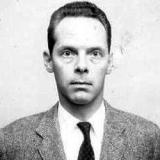
Allen W. Philips, born 1922 in Providence Rhode Island and former Professor of Hispanic Literature has died at his home in San Diego where he has lived since 1983. Professor Phillips graduated from Phillips Exeter Academy and then received his BA degree from Dartmouth College prior to entering the Army Air corps- WW2 - seeing service in both England and France.
After discharge from the armed forces he emigrated to Mexico where he was awarded an MA from the National University of Mexico and then, in 1955, he earned his PhD from the University of Michigan (Ann Arbor).
Dr. Phillips' academic career began at the University of Michigan and then the University of Chicago. He subsequently accepted an appointment at the University of Texas (Austin) finally retiring as Professor Emeritus at the University of California (Santa Barbara) in 1983.
After retirement Professor Phillips continued research in Modern Hispanic Literature - an area of study in which he published ten books and numerous articles.
He was decorated by the Spanish Government (Orden de Alfonso el Sabio) and he also was elected tot he Mexican Academy as a corresponding member. Professor Phillips was awarded two Guggenheim Fellowships- 1960 and 1973.
Published by Poway News Chieftain from Apr. 6 to May 7, 2011.
Ph.D., University of Madrid, Professor Emeritus (1963-1993)
Enrique Martinez-López was born on August 18, 1928 in Granada, Spain. Son of Francisco and Amparo (Lopez Mesa) Martinez-López. came to the United States, 1959, naturalized 1967.
Martinez-López served as Instructor of Spanish and Hispanic Literature at Universidade da Paraiba, João Pessoa, Brazil from 1954-1956 and at Universidade do Recife, Brazil, from 1956-1959. After working as an assistant professor Spanish at the University of Houston (1959-1963) he moved to California to be an assistant professor of Spanish, at the University of California, Santa Barbara, where he stayed until 1974. He was made associate professor in1966 and became department chairman Spanish and Portuguese, University of California, Santa Barbara in 1970.
Some of his most notable works include the book "Tablero de ajedrez: Imagenes del negro heroico en la comedia española y en la literatura e iconografía sacra del Brasil esclavista."
Ph.D., Columbia University, Professor Emerita (1964-1993)
BIO
Ph.D., UC Los Angeles, Professor Emeritus (1965-1993)
Dr. Barrón made important contributions to our campus over three decades as a leading scholar, a dedicated professor, and an exemplary administrator. He joined the UCSB Department of Spanish and Portuguese in 1965. Renowned for his deep insights into Spain's 19th and early 20th century literature and culture, he published influential books and critical editions on topics such as Romanticism, the realistic novel, and the 1898 generation within the context of the Spanish-American War. His scholarly expertise extended to modern and contemporary Peruvian literature and political thought as well, and was strengthened by his deep connection to Peru and its people, including two years of service as Cultural Attaché at the U.S. embassy in Lima in the mid-1970s. At UC Santa Barbara, Professor Barrón served as Chair of our Department of Spanish and Portuguese from 1980 to 1984, and twice as EAP Study Center Director in Madrid, first in 1969-1971 and again in 1988-90. Following his retirement in the mid-1990s, he and his wife returned to Spain.
He was born in Barcelona in 1932, and left Spain in 1939 with his mother and grandfather following the Republican defeat in the Spanish Civil War and the rise of General Franco. After living for five years in Panama, the family moved to California, where Professor Barrón studied International Relations at UC Berkeley. While he maintained a lifelong interest in diplomacy and world policy, his desire to explore and deepen his cultural roots prompted him to pursue graduate studies in Hispanic literature, leading to a master’s degree at UC Berkeley and a Ph.D. at UCLA. With the support of a Fulbright Fellowship, he visited Madrid in 1964. There he met Mercedes Villanueva, whom he married one year later; they remained lovingly together for thirty two years until the end of his life
Professor Barrón is admired and remembered by a wide circle of colleagues and former students who remain deeply thankful for his hard work, enthusiasm, mentorship, and leadership. Our thoughts and condolences are with his wife, Mercedes; their sons, Carlos and Miguel; and their many friends, family members, and colleagues in Spain, the U.S., and around the world.
Text by Henry T. Yang
Ph.D., Columbia University, Professor Emeritus (1976-2010)
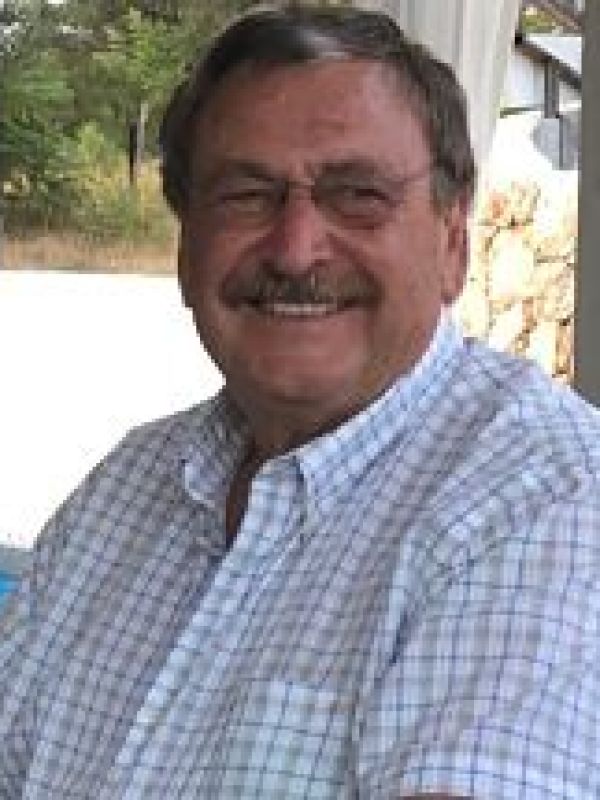
Giorgio Perissinotto was born in Trieste, Italy, at the end of World War II. Coming from a migrant family, he eventually settled in New York, later pursuing studies at Syracuse University and the Universidad Complutense de Madrid. He earned his Ph.D. from Columbia University in 1971, with a dissertation titled Fonología del español hablado en la Ciudad de México, based on research conducted at El Colegio de México in 1967 with a scholarship from the Organization of American States.
Dr. Perissinotto joined the faculty at UC Santa Barbara in 1976 and, over the following 34 years, played a vital role in shaping and expanding the Department of Spanish and Portuguese, including serving as department chair. From January 2007 to July 2009, he served as the Study Center Director for the UC Education Abroad Program in Madrid, Spain. He also co-founded the Summer Institute of Hispanic Languages and Culture at UCSB. In June 2010, he became professor emeritus but remained active in his scholarly pursuits.
Among his most notable contributions is the documentation of daily life in early Spanish California, particularly through the memorias of the Santa Barbara Presidio from 1779 to 1810. This work culminated in his 1998 publication, Documenting Everyday Life in Early Spanish California.
Ph.D., UC Santa Barbara, Lecturer Emerita (1999-2017)
Born in 1943 in Monterrey, Mexico, she began her long and dedicated career in education in 1969, after earning her degree in Pedagogy. In 1999, Dr. Esperanza Jefferson completed her Ph.D. under the mentorship of Professor Sara Poot-Herrera. Fittingly, her dissertation focused on Nellie Campobello (1900–1986), a pioneering Mexican writer and one of the few women to chronicle the Mexican Revolution from a female perspective.
Known for her unwavering commitment, joyful spirit, and vibrant sense of humor, Dr. Jefferson was beloved by generations of students. She joined the Department of Spanish and Portuguese as a Lecturer in 1999 and was awarded the title of Lecturer with Security of Employment in 2004—an achievement celebrated by all, especially given her legendary, consistently exceptional ESCI scores.
Dr. Jefferson’s devotion to the Department was evident in her service as Assistant to the Language Program Director from Winter 2010 to Fall 2012. She also took on the role of Interim Language Program Director during the summers of 2010 and 2011, further exemplifying her dedication and leadership.
P.L., University of Buenos Aires, Professor Emerita (1968-1991)
Professor Gallo was a foundational figure in the Department of Spanish and Portuguese—a pillar of both academic life and the broader campus community. She helped shape the department’s programs with a spirit that embraced change while honoring tradition. Her expansive knowledge of classical and modern world cultures made her a cherished mentor to both undergraduate and graduate students. She directed numerous doctoral dissertations, and many of her students—among them the acclaimed Spanish writer Soledad Puértolas—have gone on to become professors and scholars at institutions around the world.
Even after her retirement in 1991, she remained a source of inspiration to generations of students, often welcoming them into her home for seminars. Born in Buenos Aires, Argentina, on October 20, 1924, she studied Philology at the University of Buenos Aires. After a period teaching at the University of Puerto Rico, she joined the faculty at UC Santa Barbara in 1968, making Santa Barbara her permanent home.
Ph.D., UC Berkeley, Professor Emeritus (1958-1988)
David was born in San Francisco on October 25, 1924 and spent his early youth in the Bay Area and Idaho. In 1948 he received the A.B. degree in Latin American Studies from UC Berkeley. He continued his studies at UC Berkeley, earning the M.A. degree in Spanish in 1950 and the Ph.D. in Romance Languages and Literatures in 1956.
In 1958 David came to Santa Barbara where he was appointed as assistant professor in the Department of Foreign Languages at Santa Barbara College of the University of California, shortly to become a full-fledged UC campus. After receiving tenure in 1964 and a research trip to Spain, David served between 1965 and 1970 as chair of what was still a young Department of Spanish and Portuguese. It was a period of great expansion of degree programs and the hiring of new faculty, in addition to a time of widespread social turmoil and protest on and off-campus. In addition to his departmental activities, David was a strong supporter of UCSB’s interdisciplinary Hispanic Civilization Program (today Latin American and Iberian Studies). David Bary was a towering figure in the fields of 20th century Latin American and Spanish poetry, as well as in the Avant Garde movements Surrealism and Creacionismo.
Henry T. Yang
Ph.D., UC Los Angeles, Professor Emeritus (1968-2011)
Professor Harvey L. Sharrer started as an Acting Assistant Professor at UCSB in 1968. He became Assistant in 1970. Professor Sharrer completed his BA and MA at UC Berkeley, and obtained his Ph.D. at UCLA in 1970. A model scholar, Harvey Sharrer's impressive range of knowledge about the Middle Ages encompassed Arthurian literature, Medieval lyric and digital humanities, in which he was a pioneer. He worked with Portuguese, Galician, Spanish and Catalan literatures. In 1970, Harvey Sharrer was the co-founder of the first American Journal devoted to medieval Iberian literatures, La Corónica. His most important work was PhiloBiblon, a collaborative project consisting of a database of medieval Iberian Peninsula manuscripts which received continued support from the NEH since the 1980s. Harvey Sharrer made a momentous discovery of seven unknown lyric poems in Galician-Portuguese by King Dinis (14th century) copied on a parchment now known as Pergaminho Sharrer (Parchment Sharrer). Harvey Sharrer will be missed not only for his extraordinary scholarship, which will remain exemplary in Medieval Studies, but as a remarkable mentor for our students and young scholars, and as a judicious, generous, polite colleague to all members of the Spanish and Portuguese Department and their staff as well. Retirement didn't mean a thing for Harvey, who was always participating in conferences all over the world and at UCSB, as well as generously proofreading articles for the Santa Barbara Portuguese Studies.